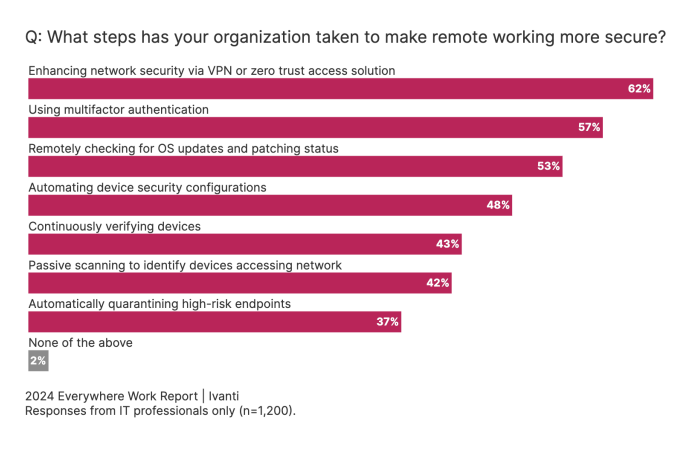4 in 10 would leave their job for more flexibility, says Ivanti
UNLEASH dug into the stats, and the solutions, with Ivanti’s SVP of Global HR.
News In Brief
Flexibility is a non-negotiable for employees across the world.
That's according to new data from Ivanti.
But employers and employees are out of sync on this, as well as the impact of technology to drive productivity. Ivanti's SVP of Global HR talks UNLEASH though the solutions.
Flexibility is no longer just a nice to have; it is a non-negotiable for employees across the world.
According to a survey of 7,700 executives, IT leaders and employees by software giant Ivanti, 80% of employees see flexibility as highly valuable.
Speaking exclusively to UNLEASH, Ivanti’s SVP of Global HR Kristen Kamp shares: “Competitive pay and benefits are now considered the baseline for attracting and retaining top talent. What truly sets employers apart is flexibility.
“Employers need to remember that flexibility isn’t just about hours; it’s about where, when and how employees work, too.”
The issue is that while executives agree that employees who can work remotely should be able to do so – and just 15% wanted employees in the office five days a week – only 25% of employees said they currently have the type of flexible working they would like.
This disconnect could have “weighty implications” for employers, according to Ivanti’s research, especially given that 40% of employees would consider leaving their current job for more flexibility.
But this isn’t the only concern for organizations. Leaders and employees are also out of sync on tech – 90% of executives said that workers have the tools to be productive from anywhere, but just 57% of workers agreed.
Ivanti CEO Jeff Abbott shared: “Employers seeking to hire top talent should prioritize workplace flexibility, as it has a clear business advantage.
“To effectively implement flexible work arrangements, it’s essential to provide employees with the necessary resources, support and secure infrastructure to ensure their success.
Neglecting these factors may lead to higher turnover rates and dissatisfaction among valuable employees you are trying to keep engaged.”
Security, flexibility and HR tech
Unfortunately, there’s another challenge to add to the mix, and that is security.
Ivanti’s report states: “When employees work outside of typical office locations and hours, they’re more likely to do things that introduce incremental risk — behaviors like using personal devices for work or accessing public charging docks.”
But, given that flexibility is so important to employees, organizations should certainly not just roll back on remote working opportunities.
Instead, according to IT leaders surveyed by Ivanti, they can think about enhancing network security (through VPNs or zero-trust approaches) (62%), use multi-factor authentication (57%) and continuously verify devices (43%).

There is also an urgent need for IT and HR teams to work really closely together to have full visibility of the tech stack – for security purposes, but also to ensure the tools are meeting employee expectations in other ways.
Doing all this work will reap the rewards, you’ll have engaged employees who are productive and feel trusted to work anywhere.
Ivanti’s data found 81% of employees think where they work shouldn’t matter so long as the work is done well, while 79% agree that letting people work from anywhere is the future of employment.
In conclusion, Ivanti’s Kamp tells UNLEASH: “My recommendation to HR professionals is to survey employees and the rest of the executive suite to understand knowledge workers’ attitudes and priorities about different modes of work (e.g., remote, hybrid, flexible).”
Employers, it’s time to get on board – or face falling behind.
Sign up to the UNLEASH Newsletter
Get the Editor’s picks of the week delivered straight to your inbox!

Chief Reporter
Allie is an award-winning business journalist and can be reached at alexandra@unleash.ai.
